
Antsirabe: The Thermal Oasis of Madagascar
Nestled in the central highlands of Madagascar, Antsirabe is a charming city known for its cool climate and thermal springs. This city, often referred to as the 'Vichy of Madagascar,' boasts a unique blend of natural beauty and colonial heritage. The streets are lined with old French-style buildings, giving it a quaint, European feel. Antsirabe is famous for its thermal baths, which attract visitors seeking health and relaxation. The natural hot springs are believed to have therapeutic properties, offering a perfect way to unwind after a day of exploration. In addition to its rejuvenating waters, Antsirabe is surrounded by stunning landscapes. You can take a leisurely walk through the city’s parks or embark on a scenic drive to nearby volcanic lakes and rolling hills. The local markets are a vibrant hub of activity, where you can find handmade crafts and fresh produce, giving you a taste of the local culture. The city is also a hub for rickshaw rides, known locally as pousse-pousse. These colorful, human-powered vehicles offer a fun and eco-friendly way to explore the city. Antsirabe's friendly locals and relaxed pace make it an ideal destination for those looking to experience the authentic charm of Madagascar.
Local tips in Antsirabe
- Try the thermal baths for a relaxing experience. The waters are believed to have health benefits.
- Explore the local markets to find unique handmade crafts and fresh produce.
- Take a pousse-pousse ride to experience the city in a traditional, eco-friendly way.
- Visit the nearby volcanic lakes for stunning natural scenery and great photo opportunities.
Antsirabe: The Thermal Oasis of Madagascar
Nestled in the central highlands of Madagascar, Antsirabe is a charming city known for its cool climate and thermal springs. This city, often referred to as the 'Vichy of Madagascar,' boasts a unique blend of natural beauty and colonial heritage. The streets are lined with old French-style buildings, giving it a quaint, European feel. Antsirabe is famous for its thermal baths, which attract visitors seeking health and relaxation. The natural hot springs are believed to have therapeutic properties, offering a perfect way to unwind after a day of exploration. In addition to its rejuvenating waters, Antsirabe is surrounded by stunning landscapes. You can take a leisurely walk through the city’s parks or embark on a scenic drive to nearby volcanic lakes and rolling hills. The local markets are a vibrant hub of activity, where you can find handmade crafts and fresh produce, giving you a taste of the local culture. The city is also a hub for rickshaw rides, known locally as pousse-pousse. These colorful, human-powered vehicles offer a fun and eco-friendly way to explore the city. Antsirabe's friendly locals and relaxed pace make it an ideal destination for those looking to experience the authentic charm of Madagascar.
When is the best time to go to Antsirabe?
Iconic landmarks you can’t miss
Zandina
Discover the rich flavors of Madagascar at Zandina, a cozy restaurant in Antsirabe offering a delightful blend of local and international cuisines.
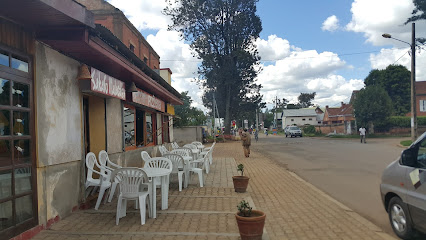
Couleur Café
Experience the charm of Couleur Café in Antsirabe, Madagascar – a perfect blend of comfort, culture, and culinary delights.

Eco Lodge Les Chambres Du Voyageur
Discover the tranquil charm of Eco Lodge Les Chambres Du Voyageur in Antsirabe, a sustainable haven for nature lovers and adventure seekers.

Hotel VATOLAHY
Experience the authentic flavors of Madagascar at Hotel VATOLAHY, a top restaurant in Antsirabe offering traditional dishes in a welcoming atmosphere.

Arotel
Discover the warmth of Madagascar at Arotel, your cozy retreat in Antsirabe, blending comfort with local charm for an unforgettable stay.

Lake Andraikiba
Discover the tranquility and natural beauty of Lake Andraikiba, a serene gem in Madagascar perfect for relaxation and cultural immersion.
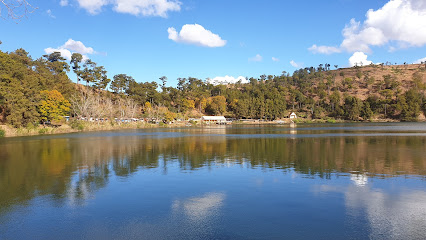
Our Lady of La Salette
Discover the tranquility and beauty of Our Lady of La Salette, a stunning Catholic church in Antsirabe, Madagascar, enveloped in rich culture and spirituality.
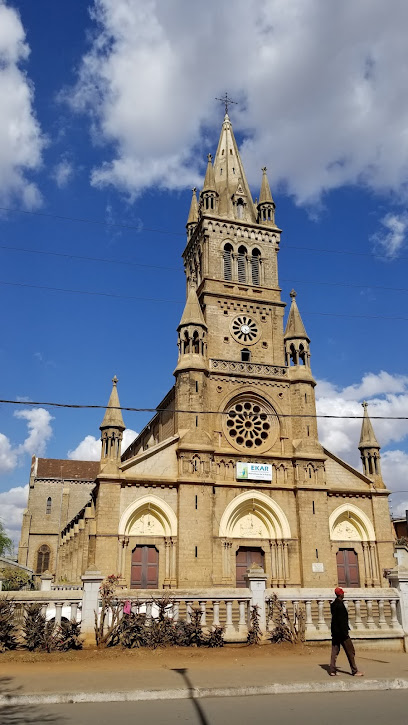
Monument Fahaleovantena
Explore the rich cultural heritage of Madagascar at Monument Fahaleovantena, a captivating museum in Antsirabe showcasing local art and history.
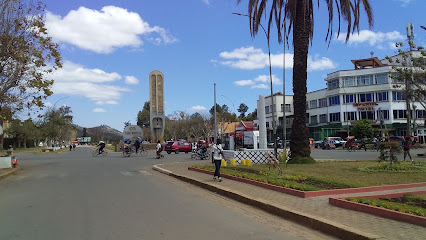
CODE 110
Discover CODE 110, Antsirabe's vibrant hookah bar, where local culture meets an inviting atmosphere for memorable evenings.
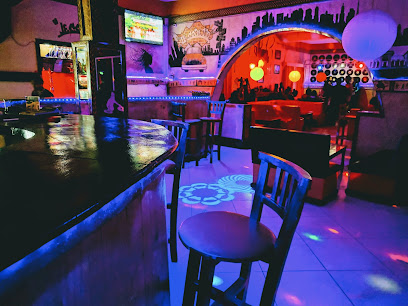
Antsirabe. Madagascar
Explore Antsirabe, Madagascar: A unique fusion of stunning highland landscapes, rich culture, and historical charm awaits you in this captivating city.
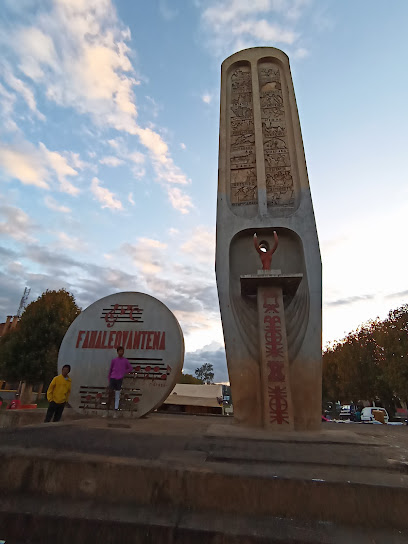
Madagascar Green Tours
Experience Madagascar's stunning landscapes and rich culture with Madagascar Green Tours, your trusted guide to this enchanting island.
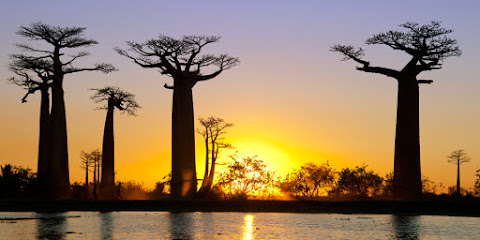
Hotel Hasina
Discover comfort and local charm at Hotel Hasina, your ideal base for exploring the vibrant city of Antsirabe in Madagascar.

Horse riding
Experience the beauty of Antsirabe on horseback, exploring scenic trails and embracing the culture of Madagascar through this unique tourist attraction.

Asabotsy Market
Experience the heart of Antsirabe at Asabotsy Market, where vibrant local culture, delicious food, and unique crafts await every visitor.
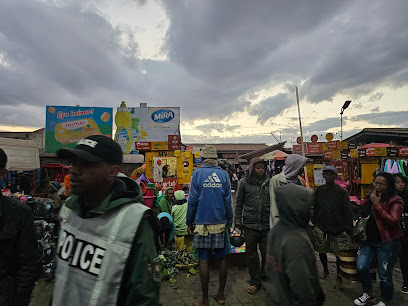
Rencontre Avec Dago
Explore Madagascar with Rencontre Avec Dago: Your trusted travel agency in Antsirabe for unforgettable adventures.
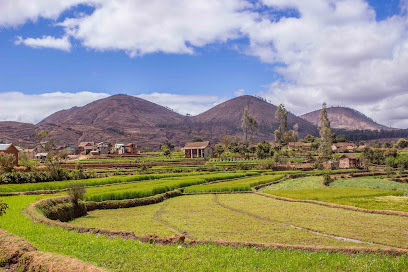
Unmissable attractions to see
Horse riding
Explore the stunning landscapes of Antsirabe through exhilarating horse riding adventures that connect you with nature and local culture.

Arbre Tlemsani k
Explore the tranquil beauty of Arbre Tlemsani, Antsirabe's exquisite garden, where vibrant flora and serene pathways await your discovery.

Espace Mahatamana
Espace Mahatamana: A serene park in Antsirabe, Madagascar, perfect for relaxation, picnics, and enjoying the beauty of nature.
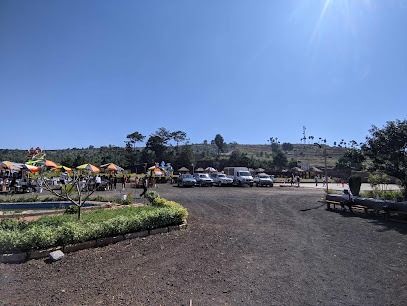
Fandrevoana
Experience the tranquil beauty of Fandrevoana country park in Antsirabe, a serene escape into nature's embrace.
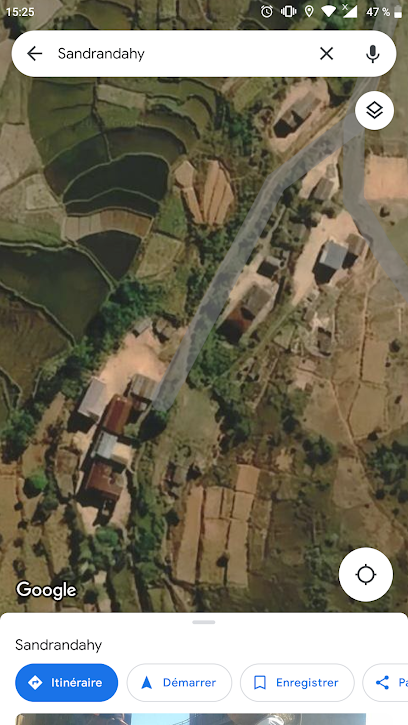
Ambohitrinibe Antsirabe
Explore the vibrant culture and breathtaking landscapes of Ambohitrinibe Antsirabe, a hidden gem in Madagascar, perfect for adventurous travelers.

SAHA NI SOA
Explore the serene beauty of SAHA NI SOA Garden in Antsirabe, Madagascar, where vibrant flora and tranquility await every visitor.

Jardin des problèmes
Discover the tranquil beauty of Jardin des Problèmes in Antsirabe, a serene garden perfect for relaxation and nature photography.

Dobo Art
Explore Dobo Art in Antsirabe, Madagascar - a unique garden blending local artistry with the beauty of nature for a memorable travel experience.

Joy lac
Discover tranquility at Joy Lac in Antsirabe, Madagascar, a beautiful park perfect for relaxation, picnics, and appreciating nature's serenity.

Tany ambohidava
Discover Tany Ambohidava, a tranquil park in Antsirabe, Madagascar, where lush greenery and serene paths create a perfect escape into nature.

Essential places to dine
Zandina
Discover authentic Malagasy flavors blended with international cuisine at Zandina in Antsirabe.
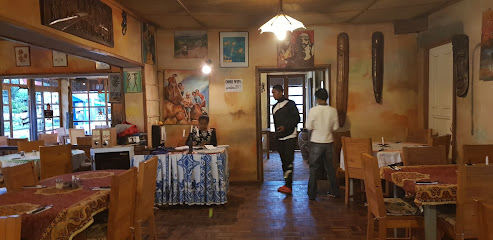
Chez Jenny
Discover authentic Malagasy cuisine and vibrant flavors at Chez Jenny, a top-rated restaurant in Antsirabe.
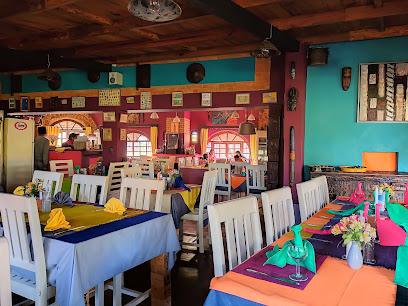
L'Insolite
Experience authentic Malagasy cuisine at L'Insolite, where tradition meets innovation in the heart of Antsirabe.
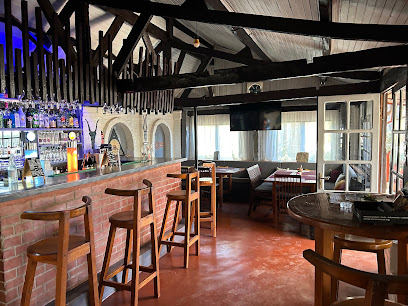
Green Park Hotel
Experience authentic Malagasy flavors at Green Park Hotel in Antsirabe - where culinary tradition meets modern comfort.
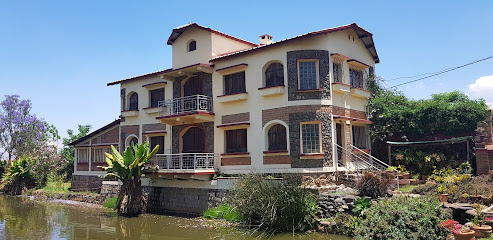
Valahara Café
Experience the heart of Antsirabe at Valahara Café – where local flavors meet international cuisine in a cozy setting.
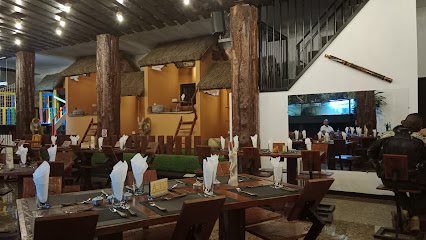
Mirana
Discover the authentic tastes of Madagascar at Mirana in Antsirabe - where every dish tells a story.
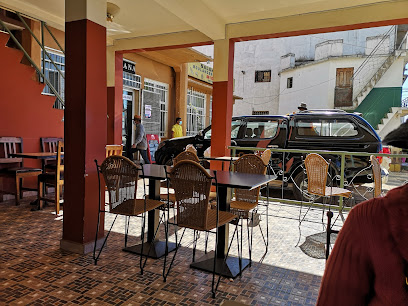
Pousse-Pousse Snack Bar
Experience authentic Malagasy cuisine at Pousse-Pousse Snack Bar in Antsirabe – where every meal is a celebration of local flavors!
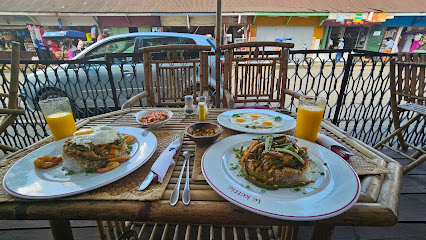
Chez Dom le Restaurant du Trianon
Experience authentic Malagasy cuisine at Chez Dom le Restaurant du Trianon in Antsirabe, where every meal is crafted to delight your senses.
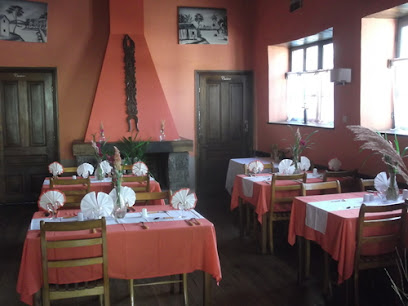
Restaurant Le Rêve
Discover the flavors of Madagascar at Restaurant Le Rêve in Antsirabe - a culinary haven for food lovers seeking authentic local cuisine.
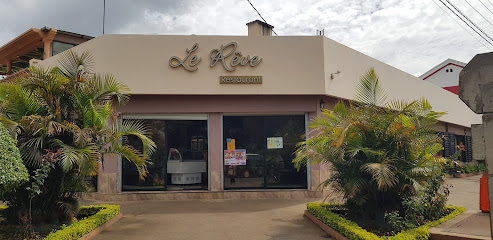
Razafimamonjy
Experience authentic Malagasy cuisine at Razafimamonjy in Antsirabe – where every dish tells a story.
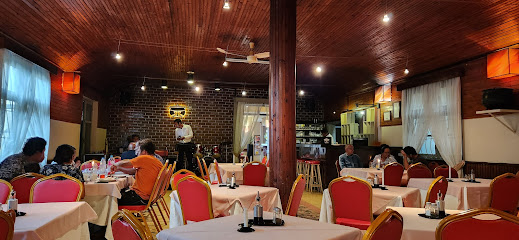
Restaurant L'anis Étoilé
Experience authentic Malagasy cuisine at Restaurant L'anis Étoilé in Antsirabe - where every meal tells a story.
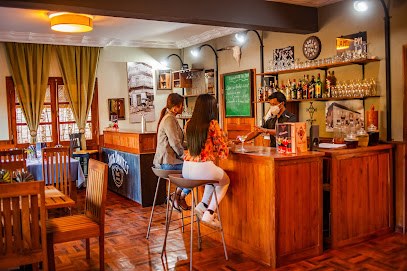
Conterno
Experience authentic Malagasy cuisine at Conterno in Antsirabe - where local flavors meet warm hospitality.
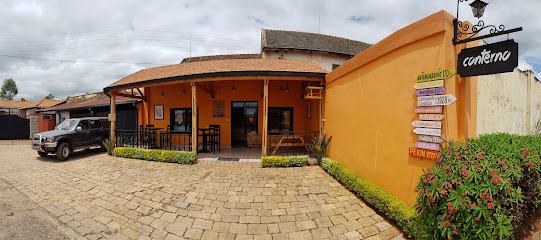
Grillaro Restaurant & Fast Food
Discover the vibrant flavors of Madagascar at Grillaro Restaurant & Fast Food in Antsirabe - where tradition meets taste!
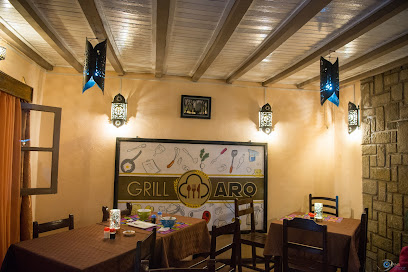
Le Grec
Experience authentic Malagasy flavors and international cuisine at Le Grec in Antsirabe - A culinary gem awaits!
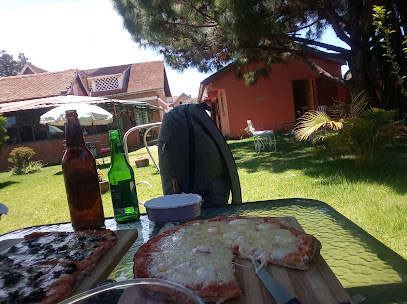
Chez Cecile et Angel
Experience authentic Malagasy cuisine at Chez Cecile et Angel in Antsirabe - a culinary haven offering delicious local dishes and warm hospitality.
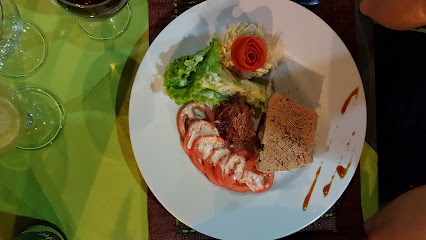
Markets, malls and hidden boutiques
Shoprite Antsirabe
Discover the vibrant local culture through shopping at Shoprite Antsirabe, where fresh produce meets Malagasy charm in a convenient supermarket.
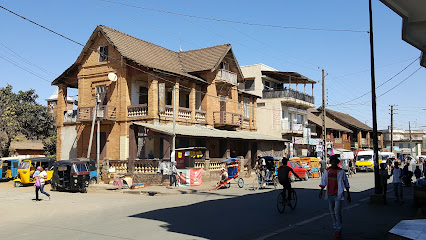
Maminirina Corne de Zebu
Discover authentic Malagasy souvenirs at Maminirina Corne de Zebu, a charming store in Antsirabe filled with local craftsmanship and culture.
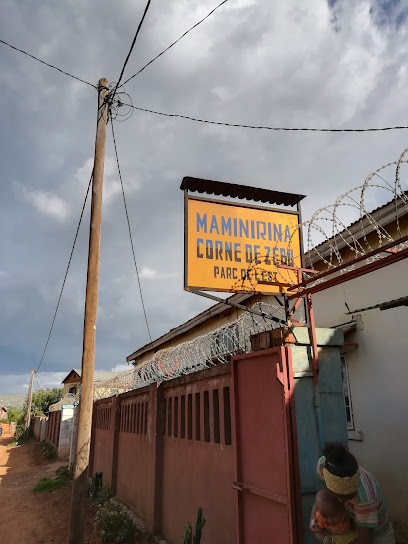
Shop Liantsoa Antsirabe
Experience the best of Madagascar at Shop Liantsoa Antsirabe, your go-to supermarket for local flavors and international favorites.
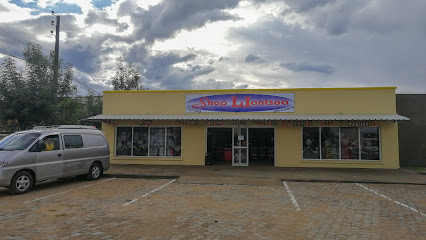
Gem Market
Explore the vibrant Gem Market in Antsirabe, Madagascar, where dazzling gemstones and exquisite jewelry await every visitor.
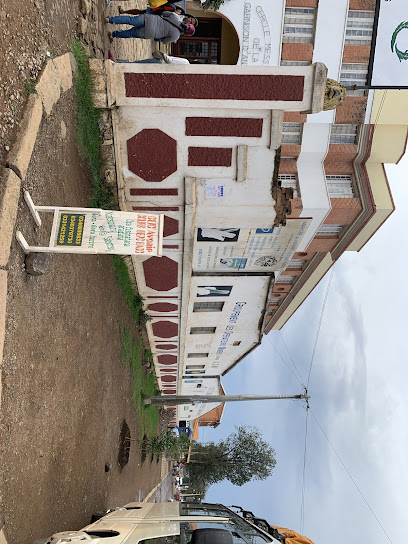
Lalôkalshop Antsirabe
Explore Lalôkalshop Antsirabe for exquisite local crafts and souvenirs, a true reflection of Madagascar's rich cultural heritage.
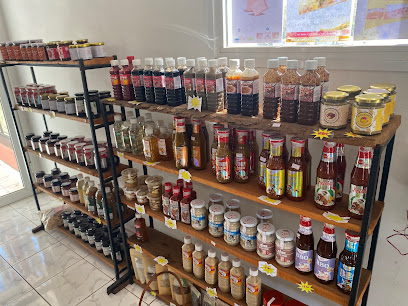
Karla boutique
Explore Karla Boutique in Antsirabe for unique clothing that blends local artistry with modern fashion, a true reflection of Madagascar's culture.

Cosmos Antsirabé
Experience the rich craftsmanship of Madagascar at Cosmos Antsirabé, a home goods store filled with unique, locally made treasures.
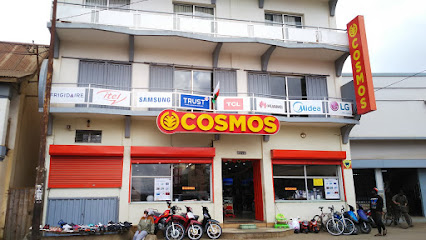
la Caverne des épices
Immerse yourself in the vibrant flavors of Madagascar at La Caverne des Épices, Antsirabe's premier gourmet grocery store.
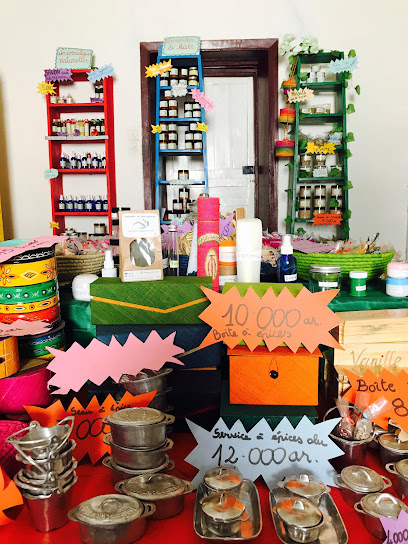
Épicerie Malala
Discover the heart of Antsirabe at Épicerie Malala, where local flavors and warm hospitality create an unforgettable shopping experience.
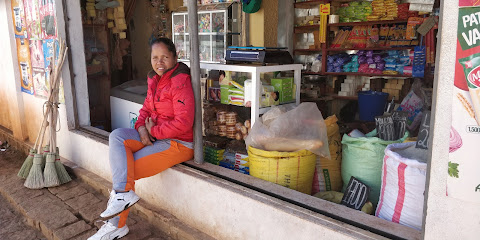
Ankoala Gallery
Explore the vibrant culture of Madagascar through unique clothing and handmade accessories at Ankoala Gallery in Antsirabe.
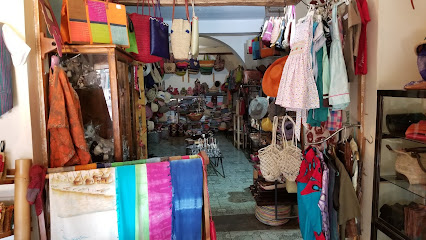
MARCHE SABOTSY
Explore the vibrant Marche Sabotsy in Antsirabe, a shopping mall filled with local crafts, fresh produce, and unique souvenirs, capturing Madagascar's rich culture.
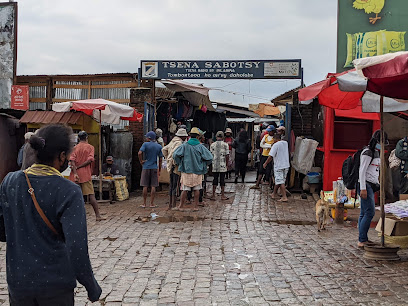
Les Boutik Coeur de Foret Madagascar
Discover serenity at Les Boutik Coeur de Foret Madagascar, where aromatherapy and massage converge for an unforgettable wellness experience in Antsirabe.
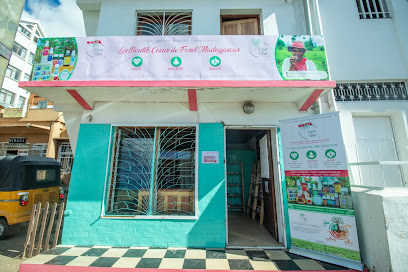
Telma shop Antsirabe
Explore the vibrant local crafts and products at Telma Shop, a charming kiosk in Antsirabe, Madagascar.
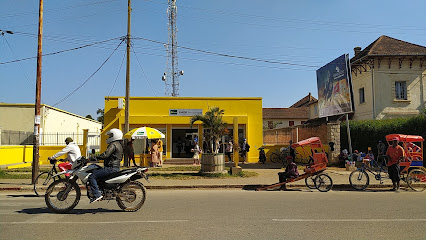
Nampy
Explore the vibrant local culture at Nampy, a unique store in Antsirabe offering authentic Malagasy products and warm hospitality.

Miharivola Ambohimena
Explore Miharivola Ambohimena in Antsirabe for authentic Malagasy crafts and local goods, a true reflection of Madagascar's vibrant culture.

Essential bars & hidden hideouts
B'Art Haingo
Discover the vibrant atmosphere of B'Art Haingo in Antsirabe, where local drinks and lively culture come together for an unforgettable experience.
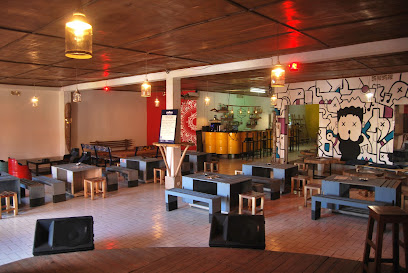
Le XV BE / NUL BAR AILLEURS
Discover the vibrant atmosphere and delightful flavors at Le XV BE / NUL BAR AILLEURS, a top bar and restaurant in Antsirabe.
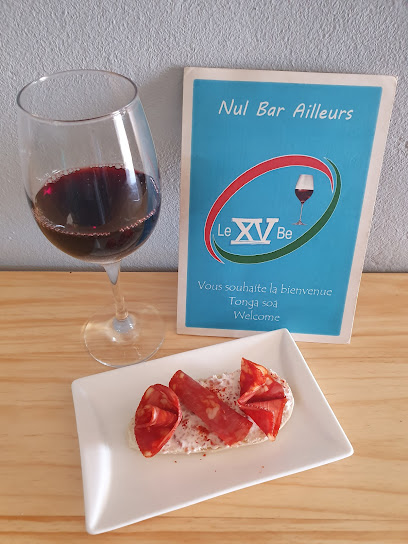
La Palette
Experience the joy of karaoke at La Palette, Antsirabe's lively bar offering fun, music, and a welcoming atmosphere for all.
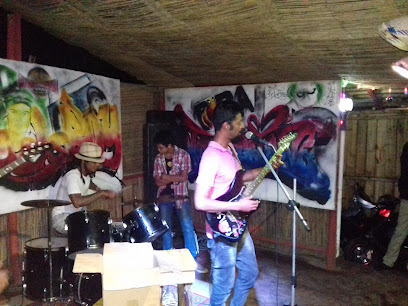
Sanfil
Discover the vibrant ambiance of Sanfil, a top bar in Antsirabe, serving delightful drinks and a welcoming atmosphere for all travelers.
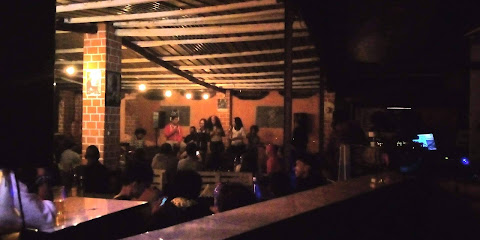
Karaoke Atlas
Discover the vibrant atmosphere of Karaoke Atlas in Antsirabe, where music and fun come together for an unforgettable night out.
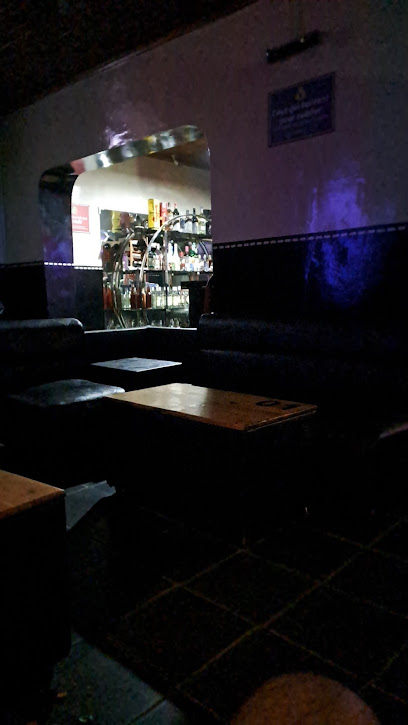
AK'ETO
Discover the vibrant nightlife of Antsirabe at AK'ETO, a bar offering a unique blend of local culture and friendly atmosphere.
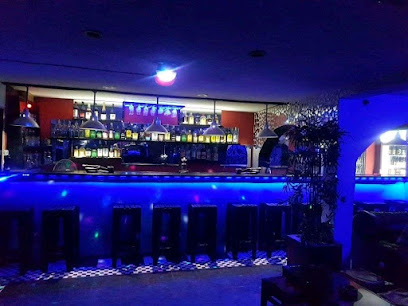
Le Dix
Experience the vibrant atmosphere of Le Dix, a charming bar in Antsirabe offering refreshing drinks and a taste of Madagascar's social scene.
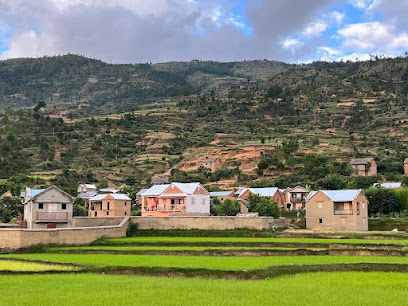
Chez Prisca
Discover the charm of Chez Prisca, a cozy bar in Antsirabe offering local drinks and vibrant atmosphere for tourists seeking relaxation.
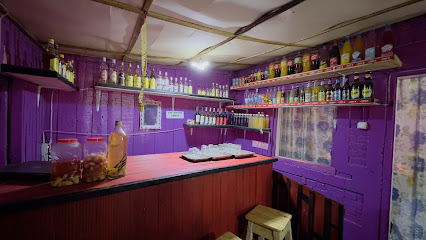
Étoile bar Saholy
Unwind at Étoile Bar Saholy, a cozy retreat in Antsirabe offering refreshing drinks and a friendly local atmosphere for tourists.
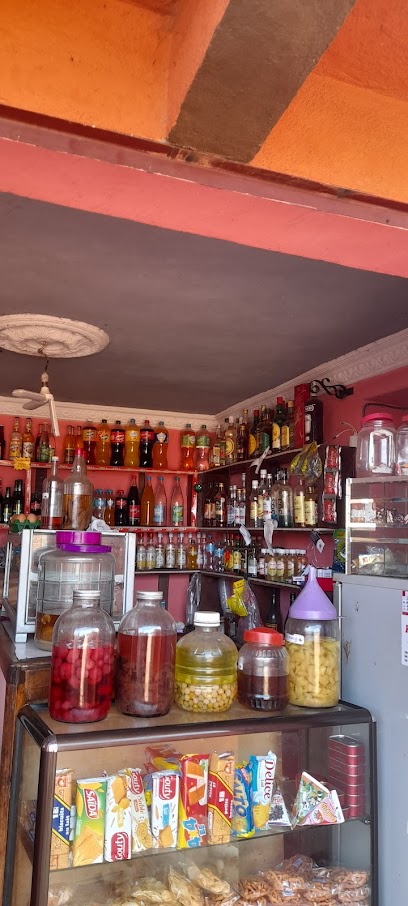
HAPPY HOUR
Experience the vibrant nightlife of Antsirabe at Happy Hour, a top lounge for refreshing drinks and a lively atmosphere.

Tropik art
Experience the vibrant nightlife at Tropik Art Karaoke Bar in Antsirabe, where fun, music, and memories await every visitor.

Masikita
Discover Masikita in Antsirabe, a vibrant bar offering local drinks and a cozy atmosphere perfect for relaxation and socializing.

Epi Bar FARATIANA
Experience the vibrant nightlife at Epi Bar FARATIANA in Antsirabe, where local flavors meet a lively atmosphere in Madagascar's charming city.
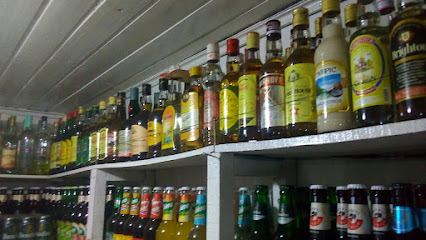
Cristal
Discover Cristal in Antsirabe: A lively bar offering a taste of local culture and a vibrant nightlife experience in Madagascar.

Local Phrases
-
- HelloManao ahoana
[mah-now ah-wan] - GoodbyeVeloma
[veh-lo-mah] - YesEny
[eh-ny] - NoTsia
[tsi-ah] - Please/You're welcomeAzafady
[ah-zah-fah-dee] - Thank youMisaotra
[mee-sah-oh-trah] - Excuse me/SorryAzafady
[ah-zah-fah-dee] - How are you?Inona ny vaovao?
[ee-no-nah nee vah-oh-vah-oh] - Fine. And you?Tsara. Ary ianao?
[tsah-rah ah-ree ee-ah-nah-oh] - Do you speak English?Miteny teny anglisy ve ianao?
[mee-teh-ny teh-ny ahng-lee-see veh ee-ah-nah-oh] - I don't understandTsy fantatro
[tsi fahn-tah-tro]
- HelloManao ahoana
-
- I'd like to see the menu, pleaseTe-hah-tsaky ny menio azafady
[teh-hah-tsah-ky nee meh-nyoh ah-zah-fah-dee] - I don't eat meatTsy misy hena amiko
[tsi mee-see hay-nah ah-mee-koh] - Cheers!Mazotoa!
[mah-zoh-toh-ah] - I would like to pay, pleaseTe-hah-kaniko azafady
[teh-hah-kah-nee-koh ah-zah-fah-dee]
- I'd like to see the menu, pleaseTe-hah-tsaky ny menio azafady
-
- Help!Fanampiana!
[fah-nahm-pee-ah-nah] - Go away!Mandehana!
[mah-ndeh-hah-nah] - Call the Police!Mangataka ny polisy!
[mah-ngah-tah-kah nee poh-lee-see] - Call a doctor!Mangataka dokotera!
[mah-ngah-tah-kah doh-koh-teh-rah] - I'm lostEfa nifandray aho
[eh-fah nee-fahn-drah ah-wan] - I'm illMangaingaina aho
[mah-nga-ee-ngah-ee-nah ah-wan]
- Help!Fanampiana!
-
- I'd like to buy...Te-hah-keniko...
[teh-hah-keh-nee-koh] - I'm just lookingMamataho aho
[mah-mah-tah-hoo ah-wan] - How much is it?Ohatra ny vidiny?
[oh-ha-trah nee vee-dee-ny] - That's too expensiveMahafinaritra lavitra
[mah-hah-fee-nah-ree-trah lah-vee-trah] - Can you lower the price?Azo alaivo ny vidiny ve ianao?
[ah-zoo ah-lah-ee-voo nee vee-dee-ny veh ee-ah-nah-oh]
- I'd like to buy...Te-hah-keniko...
-
- What time is it?Inona no ora?
[ee-no-nah noh oh-rah] - It's one o'clockIrery iray ora
[ee-reh-ree ee-rai oh-rah] - Half past (10)Alina roa sy folo
[ah-lee-nah roo-ah see foh-loh] - MorningMaraina
[mah-rah-ee-nah] - AfternoonHariva
[hah-ree-vah] - EveningAnkony
[ahn-koh-nee] - YesterdayAndroany
[ahn-droh-ahn] - TodayAnio
[ahn-yoo] - TomorrowAmanha
[ah-mahn-hah] - 1Iray
[ee-rai] - 2Roa
[roh-ah] - 3Telo
[teh-loh] - 4Efatra
[eh-fah-trah] - 5Dimy
[dee-mi] - 6Enina
[eh-nee-nah] - 7Fito
[fee-toh] - 8Valo
[vah-loh] - 9Sivy
[see-vi] - 10Folo
[foh-loh]
- What time is it?Inona no ora?
-
- Where's a/the...?Aiza ny...
[ah-ee-zah nee] - What's the address?Inona ny adiresy?
[ee-no-nah nee ah-dee-reh-see] - Can you show me (on the map)?Azo averiko ve (amin'ny sarimihetsika)?
[ah-zoo ah-veh-ree-koh veh ah-meen-nee sah-ree-mee-heh-tsee-kah] - When's the next (bus)?Aiza ny farany (fiara)?
[ah-ee-zah nee fah-rah-ny fee-ah-rah] - A ticket (to ....)Fakana (ho ...)
[fah-kah-nah oh]
- Where's a/the...?Aiza ny...
History of Antsirabe
-
Antsirabe, which means 'the place of much salt,' was founded in 1872. The city was established by Norwegian missionaries who were drawn to its cool climate and therapeutic hot springs. These missionaries played a key role in the development of the city's early infrastructure, including schools and health facilities.
-
During the French colonial period from 1896 to 1960, Antsirabe became a popular resort town for French settlers. The colonial government invested in the city, building grand hotels, thermal baths, and other amenities. This era saw the construction of some of Antsirabe's most iconic buildings, including the Hôtel des Thermes, a luxurious hotel that remains a landmark to this day.
-
In the mid-20th century, Antsirabe emerged as an important industrial center in Madagascar. The city became known for its textile factories and agricultural processing plants. This industrial boom attracted workers from all over the country, contributing to Antsirabe's cultural diversity and rapid urbanization.
-
Following Madagascar's independence from France in 1960, Antsirabe continued to grow and develop. The city's economy diversified, with tourism playing an increasingly important role. Visitors flocked to its hot springs, scenic lakes, and colonial architecture. The local government invested in infrastructure improvements, further enhancing Antsirabe's appeal as a travel destination.
-
Antsirabe is a hub of cultural activity, known for its vibrant festivals and traditional crafts. The city hosts the annual 'Festival des Arts' which showcases local music, dance, and artisan crafts. The local markets are famous for their handmade goods, including intricate embroidery and zebu horn carvings, reflecting the rich cultural heritage of the region.
-
The thermal springs of Antsirabe have been renowned for their therapeutic properties since the city's founding. These hot springs are rich in minerals and are believed to have healing qualities. Health tourism remains a significant part of Antsirabe's economy, with numerous spas and wellness centers offering treatments that capitalize on the natural hot springs.
Antsirabe Essentials
-
Antsirabe is located approximately 170 kilometers south of Antananarivo, the capital city of Madagascar. The most common way to reach Antsirabe is by road. You can hire a taxi-brousse (shared taxi) from Antananarivo, which takes around 3-4 hours depending on traffic and road conditions. Private car hire is also an option, offering more comfort and flexibility. There are no direct flights to Antsirabe, as the nearest airport is in Antananarivo.
-
Within Antsirabe, transportation options include pousse-pousse (rickshaws), taxis, and bicycle rentals. Pousse-pousse is a popular and affordable way to get around the town. Taxis are available and can be hailed on the street or booked in advance. For a more leisurely exploration, consider renting a bicycle. Walking is also a viable option, as many attractions are within a reasonable distance from each other.
-
The official currency in Madagascar is the Malagasy Ariary (MGA). Credit cards are accepted in some hotels, restaurants, and larger shops, but it is advisable to carry cash, especially for small purchases and in more remote areas. ATMs are available in Antsirabe, but it is wise to have sufficient cash on hand. Currency exchange services are also available in banks and some hotels.
-
Antsirabe is generally considered safe for tourists, but it is important to take standard precautions. Avoid walking alone at night, especially in poorly lit areas. Petty theft, such as pickpocketing, can occur in crowded places, so keep an eye on your belongings. Certain neighborhoods, like the bus station area, may have higher crime rates targeting tourists, so stay vigilant and avoid these areas after dark.
-
In case of an emergency, you can contact local authorities by dialing 117 for police assistance or 124 for medical emergencies. Antsirabe has a hospital and several clinics where you can seek medical attention. It is recommended to have travel insurance that covers medical emergencies. Pharmacies are available for minor health issues and over-the-counter medications.
-
Fashion: Do dress modestly, especially when visiting religious sites. Avoid wearing revealing clothing. Religion: Do respect local customs and traditions. Remove your shoes and cover your head when entering places of worship. Public Transport: Do be respectful and give up your seat to elderly passengers. Don't eat or drink on public transport. Greetings: Do greet people with a handshake and a smile. Use 'Salama' (hello) to greet locals. Eating & Drinking: Do try local dishes and accept food offerings graciously. Don't refuse hospitality, as it is considered impolite.
-
To experience Antsirabe like a local, visit the bustling local markets where you can buy fresh produce and artisanal crafts. Engage with locals, who are often friendly and happy to share insights about their culture and traditions. Don't miss the hot springs and thermal baths, a popular local attraction. For a unique experience, take a ride on a pousse-pousse and enjoy a leisurely tour of the town.
Nearby Cities to Antsirabe
-
Things To Do in Antananarivo
-
Things To Do in Fianarantsoa
-
Things To Do in Andasibe
-
Things To Do in Manakara
-
Things To Do in Toamasina
-
Things To Do in Mahajanga
-
Things To Do in Majunga
-
Things To Do in Ifaty
-
Things To Do in Toliara
-
Things To Do in Mandrare River
-
Things To Do in Fort Dauphin
-
Things To Do in Nosy Be
-
Things To Do in Chirongui
-
Things To Do in Bandrele
-
Things To Do in Dembeni











